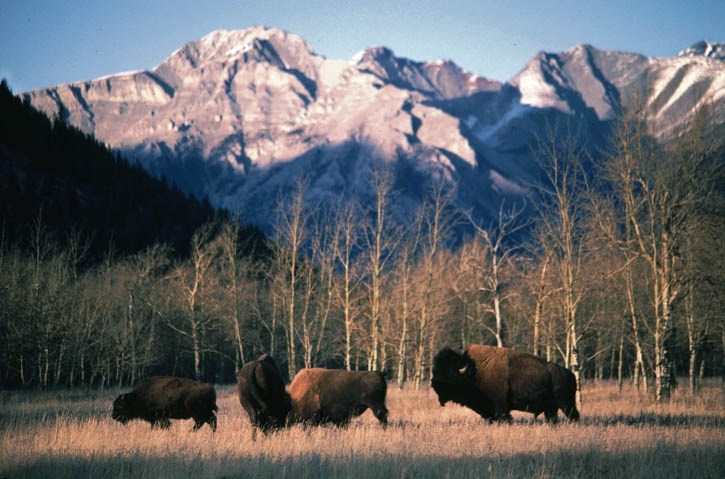BANFF – An Indigenous bison harvest in Banff National Park looks set to go ahead this year following a pilot hunt in 2024.
Three bison were harvested last fall during the first ceremonial bison hunt in the park in 145 years. All three bison were taken by free range and without any motorized access.
“It’s entirely likely that this ceremonial harvest will continue on in future years,” said Sal Rasheed, superintendent of Banff National Park during the 25th annual round table planning forum on March 18.
“We’re getting counsel from the Indigenous Advisory Circle (IAC) on what that will look like.”
The IAC for Banff National Park is made up of the Siksika Nation, Îyârhe (Stoney) Nakoda First Nation (Bearspaw, Chiniki, and Goodstoney), Kainai Nation, Piikani Nation, Tsuut’ina Nation and the Otipemisiwak Métis Government – Rocky View and Red Deer Métis Districts.
There was a cap of eight bison allowed to be taken under the joint Parks Canada and Indigenous initiative, with the Piikani Nation taking down the first bison on Oct. 9, 2024. One bison was allocated per IAC member.
The Red Deer River Valley of Banff National Park was closed from Oct. 6 to Nov. 18, 2024, to facilitate the Indigenous bison hunt.
Rasheed said the harvest marked a significant moment of cultural connection and honouring of Indigenous traditions.
“The harvest was an important step in exercising rights as protected under Section 35 of the Constitution and it brings back ceremony that celebrates the longstanding relationship between Indigenous Peoples and bison,” he said.
Rasheed said IAC leadership with Parks Canada’s support ensured the harvest was approached with appropriate care and according to cultural practice.
“Harvesting by Indigenous Peoples is already successfully implemented in many protected heritage places across the country, including approximately half of the national parks,” he said.
“It’s nothing new to Parks Canada; it’s certainly nothing new to Indigenous Peoples, but it was fairly new to Banff National Park.”
Bison were reintroduced into Banff National Park in 2017.
In February of that year, 10 female bison and six young bulls were translocated from a disease-free herd in Elk Island National Park east of Edmonton to a soft-release fenced pasture in the Panther River Valley of Banff National Park.
For the first 16 months, bison were held in the fenced paddock in an attempt to anchor them to their new home before they were released into the greater 1,200-square-kilometre reintroduction zone in the remote eastern slopes of Banff National Park in summer 2018.
After the 2024 calving season, the bison population had grown to approximately 138 animals.



